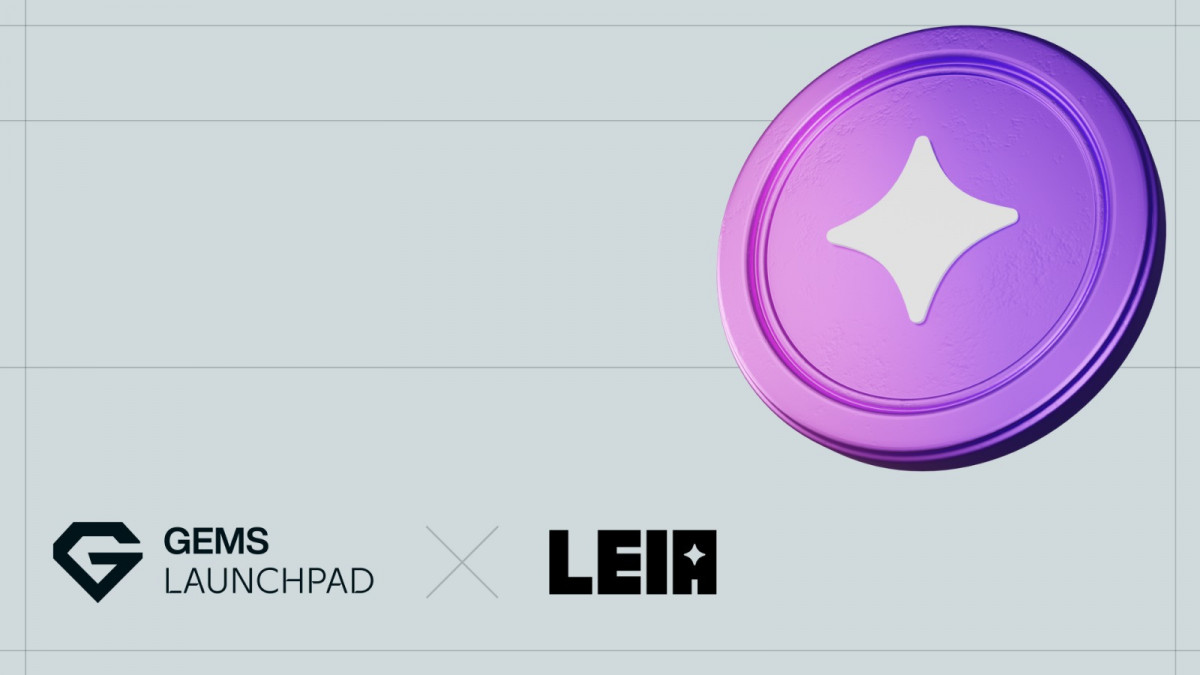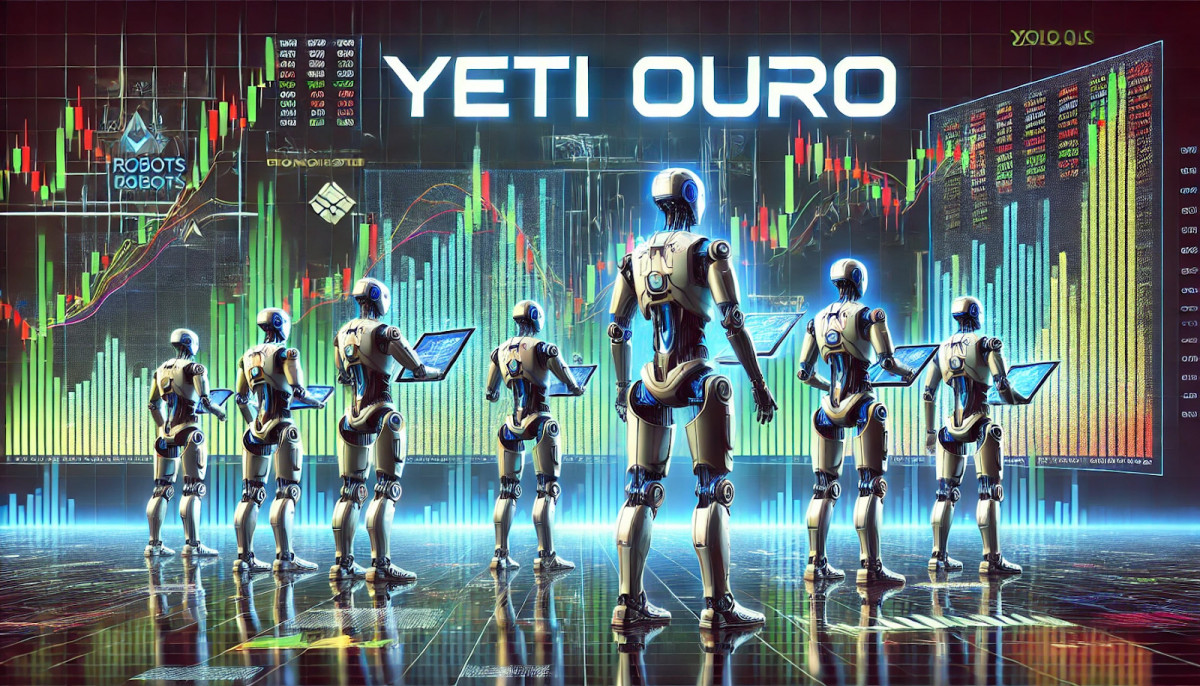Hello, and welcome to Pipeline. I’m Biz Carson, and this weekend I’m cheering on my brother and some friends who are running the Chicago marathon. (Programming note: I’m off next week and leaving Pipeline in my colleague Tomio’s hands.)
This week in the startup world: Marc Andreessen’s reading list, what happened to The Wing, and putting venture deals on the blockchain.
Scouting, but on the chain
When Bessemer first unveiled its BessemerDAO six months ago, it was purposefully a little vague on what exactly the DAO was going to do to decentralize venture capital. At the very least, it was a statement that Bessemer was taking crypto seriously and wanted to build a Web3 community. But would that lead to real innovation in venture?
This week, it launched its first project: a decentralized scouting network that turns DAO members into potential scouts for the firm.
- It’s part of a bigger rebrand and a push to decentralize the group away from Bessemer’s stewardship, said Bessemer partner Ethan Kurzweil. The BessemerDAO is now the Steel DAO (a nod to Bessemer’s Carnegie family-office origins) and will be using Syndicate’s investment club technology to help power the DAO. Its first initiatives are going to be Bridge, a talent collective, and Links, what it’s calling its on-chain scouting network.
- Any member of the DAO can scout a deal and bring it to the governance committee (currently 11 people in the Steel DAO), which will debate and vote on it. The original deal scout and the governance committee’s votes will be recorded on the Ethereum chain, and deals that pass will be brought to Bessemer to invest (which it expects to do most of the time, Kurzweil said).
- “That’s not been democratized that way before,” Kurzweil told me. “To be a scout for a traditional venture firm, you have to know somebody. It’s a little bit of a network game — can you get access to a partner at the firm such that they trust you? So in theory, this is a way to allow for an open, honest, transparent process around letting anybody have that potential access.”
- So far, Bessemer has allocated $500,000 for deals brought by the Steel DAO scout network in Web3 areas like consumer, DeFi, and infrastructure, a mere sliver of the $250 million it has set aside for crypto investing in general. Bessemer will then be sharing the profits with both the scout and the DAO’s governance committee per the Steel DAO’s charter, a proposed 5% for the GC and 10% for the scout who sourced the deal.
The existential question for any Web3 project is whether putting it “on the chain” actually makes any difference.
- After all, adding a governance committee vote in between a scout and Bessemer actually adds a step to the traditional scout process, I pointed out to Kurzweil. “Yes, it’s one more step but I don’t believe it’ll actually create any friction or add any latency to the process because the deals will be more well vetted,” Kurzweil said. Plus, there’s the potential in the future that the DAO will have its own funds as well and could invest directly as an entity, although it’s not near that today, he said.
- The other advantage he considers is the added transparency of the deals the DAO is considering by having the information stored on chain. “I think the idea of having full visibility into every investment that they’re considering and how the votes went is not something that’s been done before, and is sort of a perfect use for the blockchain if you think about it because it’s immutable, it stays there forever,” Kurzweil said. (Of course, companies voted down could end up grappling with a negative signal broadcast for eternity. Bessemer said it would “watch it closely and adjust as needed.”)
- But does having a record of who sourced deals and who voted on them really move the needle? I told Kurzweil that if transparency is the only advantage then I didn’t think an on-chain scorecard of deals was going to revolutionize or decentralize the venture ecosystem. Kurzweil argues it’s the community process of finding and vetting that will lead to a sum greater than its parts. “We believe it’ll be more than a neat scorecard system because we do believe that the collaborative process around finding new things and vetting them and making that transparent does yield better results,” Kurzweil said.
The reality is that we won’t know for a while whether a decentralized scouting network outperforms what exists today. It will likely take many years before we’re able to tell whether the Steel DAO sourced better deals and whether the added transparency was helpful in the DAO members’ reputations and careers. Having some public accountability for who originated deals and who voted yea or nay on them could be an overall good step for the venture community. At least if it became a widespread practice, it’d put an end to some of the deal-credit disputes and investors claiming they saw a deal if there’s proof of who actually did.
Overheard
The “once great civilization” of Silicon Valley. After buying a home in Las Vegas and considering Manhattan, Marc Andreessen tried to get ahead of reporters’ questions by announcing he was staying put in the “once great” Silicon Valley. “We rationalize our decision as choosing to live in the ruins of a once great civilization — like Rome in maybe 250 A.D., we live amidst an enormous flowering of culture and creativity, but the roads are becoming unsafe and nobody is quite sure why,” he tweeted. He’s become quite the student of history, so he also published a list of 42 books that he recommends to better civilization.
Kanye is mad at Josh Kushner. After previous rants against VCs, Kanye went after Thrive Capital’s Josh Kushner after finding out the very obvious fact (as Dan Primack pointed out) that Thrive owns part of Kim Kardashian’s Skims underwear line.
Documentary or a vanity project? Coinbase commissioned its own “documentary,” if you consider a documentary to be paying someone to make a film about you because you don’t want to get Sorkined like Mark Zuckerberg in “The Social Network.” It debuted on Friday, but there was no score on Rotten Tomatoes as of this newsletter’s deadline.
Liquid Death or liquid gold? The water-in-a-can brand Liquid Death is now valued at $700 million, which forced people to choose sides between this being either ridiculously dumb or ridiculously brilliant. Either way, you know Peter Pham is on a dance floor celebrating somewhere after Martha Stewart released her own “Dismembered Moments” Liquid Death candle for spooky season.
A MESSAGE FROM CAPITAL ONE SOFTWARE
Capital One’s adoption of modern cloud and data capabilities led us to create tools to operate at scale in the cloud. Capital One Software is bringing these solutions to market to help you accelerate your cloud and data journey. Get started with Slingshot, a data management solution for Snowflake customers.
Inside track
VC is a game of power laws, but it does vary between consumer and enterprise deals. In a new report, Sapphire Ventures’ Beezer Clarkson and Evan Tarzian found that “portfolio value creation in enterprise tech is often driven by a cohort of exits, while consumer exit outperformance is highly concentrated and dependent on the top deals.”
Normally it’s the startup founder who writes the company postmortem (a favorite source of reading material for me), but in this case, early investor Charlie O’Donnell of Brooklyn Bridge Ventures wrote a retrospective on The Wing from an investor’s point of view. It covers the highs and lows of The Wing’s journey well, but “in the end, we can talk founders, VCs, race and gender all we want, but much like the travel startup that I invested in that was crushed by COVID, The Wing was never going to make it through the pandemic anyway,” he surmised.
If you caught the news of the SEC fining Kim Kardashian $1.26 million over promoting EthereumMax tokens, then you might be wondering what exactly counts as a security these days. It’s something that a lot of people are arguing over, so VC lawyer Chris Harvey lays out all the sides.
Need to know
The great venture reset* is here … if you mean we’re just back to pre-pandemic levels. Venture funding fell 53% year-over-year to roughly $80 billion for the quarter, according to Crunchbase. That’s the lowest number since Q1 2020, so it’s back to the before times in venture.
Tiger Global is raising a new fund at half the size of its last one. After facing heavy losses, Tiger Global is downsizing its funding goals and is aiming for a $6 billion fund, down from its last fund of $12.7 billion. “This is not a year in which the scoreboard will make us proud,” it told investors in a letter on Monday. Partner John Curtius will also be branching out on his own and reportedly starting a new fund called Cedar Investment Management next year.
An IPO could be in Notion’s future. It hired Rama Katkar, Instacart’s former VP of finance who helped write the grocery delivery startup’s S-1, as Notion’s new CFO. It’s a sign that the $10 billion note-taking startup could be eyeing the public market someday, as its COO told Protocol it has no plans to sell anytime soon.
Elizabeth Holmes gets another hearing. Instead of a sentencing on Oct. 17, the judge granted Holmes’ team a day in court to hear arguments for a new trial. Holmes’ attorneys are arguing that the government pushed misleading testimony after a key witness showed up at Holmes’ house and asked to speak with her.
Naver buys Poshmark for $1.2 billion. The secondhand fashion app found itself up for a resale at a discount after the South Korean search giant purchased Poshmark for less than half of its IPO price.
PartyRound did the inevitable fintech pivot. It added banking features for founders so now they can raise money and hold it under a new brand name, Capital.
Moves: Former Greylock GP Sarah Guo is going all-in on AI with a new $101 million debut fund, Conviction Partners. Matt Mazzeo turned 40 this week and also left Coatue to start his own new fund. CRV raised two new funds for a combined $1.5 billion.
From Protocol: The time between funding and layoffs this year? Just three months. A Protocol analysis of the layoffs of 400 startups found that the average time between a company announcing funding and laying off staff was typically in the range of two to three months.
Also from Protocol: Don’t miss our deep dive into securing the enterprise, including what cybersecurity execs would do with a blank check right now and the 10 people shaping the future of breach prevention.
Your weekend reading: After $100 billion invested, even self-driving pioneers are starting to feel like the whole self-driving thing might not work out for awhile — or at least at a meaningful scale anytime soon. That has folks like Anthony Levandowski (the engineer at the heart of the Waymo vs. Uber trial who was pardoned by Trump) rethinking their self-driving ambitions to things a little bit more practical, like dump trucks driving across a quarry back and forth all day. “I want to do something that’s real, even if that means scaling back the grandiose visions,” Levandowski told Bloomberg in its new story on how self-driving cars are going nowhere.
Five questions with … Renegade’s Roseanne Wincek
Roseanne Wincek has made her career working in venture capital at firms like Canaan and IVP before spinning out to do her own thing. She started Renegade Partners with former Lux Capital alum Renata Quintini, and they announced Renegade’s debut $100 million fund in 2021.
What’s your pitch-deck pet peeve?
ARR that is not annual recurring revenue (with actual contracts to back it up). Multiplying revenue by 12, 52, or 365 (the most egregious) does not make it recurring. This is especially bad for companies with transactional business models.
What product or service are you totally, even irrationally, loyal to?
I do basically whatever my Whoop tells me to do. I love that there is no screen, and fitness, recovery, and sleep are all integrated. My favorite part is that it identifies packing as a cardio workout. (My prior firm invested, but well after I left.)
What problem do you want to see a startup solve?
Climate. We’ve sat on our hands way too long, bickering over the reality of it, and now have to deal with the consequences. My hope is that technology and the startup engine can actually affect real progress.
If you could meet anyone in this world today, who would you meet?
I just want to go to dinner with the hosts of my favorite podcasts — Peter Attia, Andrew Huberman, and (guilty pleasure) Dax Shepard and Monica Padman.
What was your first job, and what’s a skill you still use from it?
I spent a summer in college selling energy research over the phone. We were given literally zero training — we had to write our own pitch and as soon as it was approved, we were off to the races. I knew (and still know) nothing about oil and gas, but I learned the value of even a tiny amount of relationship building. I would often get the same receptionist since I would have multiple people at a single company on my lists. Introducing myself and spending a few minutes chatting with them gave me a ton of information about how to navigate the org and who I wanted to talk to. Receptionists and admins are gatekeepers who know where all of the bodies are buried. Always be nice and always listen to them. Always.
A MESSAGE FROM CAPITAL ONE SOFTWARE
Capital One’s adoption of modern cloud and data capabilities led us to create tools to operate at scale in the cloud. Capital One Software is bringing these solutions to market to help you accelerate your cloud and data journey. Get started with Slingshot, a data management solution for Snowflake customers.
Thanks for reading! If you like what you’re reading, sign up here to get it in your inbox. Send story tips and newsletter feedback to bcarson@protocol.com.
Read More: www.protocol.com











 Bitcoin
Bitcoin  Ethereum
Ethereum  Tether
Tether  XRP
XRP  Solana
Solana  Dogecoin
Dogecoin  USDC
USDC  Cardano
Cardano  Lido Staked Ether
Lido Staked Ether  TRON
TRON  Avalanche
Avalanche  Sui
Sui  Wrapped stETH
Wrapped stETH  Toncoin
Toncoin  Chainlink
Chainlink  Shiba Inu
Shiba Inu  Stellar
Stellar  Wrapped Bitcoin
Wrapped Bitcoin  Hedera
Hedera  Polkadot
Polkadot  WETH
WETH  Bitcoin Cash
Bitcoin Cash  LEO Token
LEO Token  Uniswap
Uniswap  Litecoin
Litecoin  Pepe
Pepe  Hyperliquid
Hyperliquid  Wrapped eETH
Wrapped eETH  NEAR Protocol
NEAR Protocol  Ethena USDe
Ethena USDe  USDS
USDS  Internet Computer
Internet Computer  Aptos
Aptos  Aave
Aave  Mantle
Mantle  Cronos
Cronos  POL (ex-MATIC)
POL (ex-MATIC)  Render
Render  Ethereum Classic
Ethereum Classic  MANTRA
MANTRA  Bittensor
Bittensor  Monero
Monero  Tokenize Xchange
Tokenize Xchange  Artificial Superintelligence Alliance
Artificial Superintelligence Alliance  Dai
Dai  Virtuals Protocol
Virtuals Protocol  Arbitrum
Arbitrum